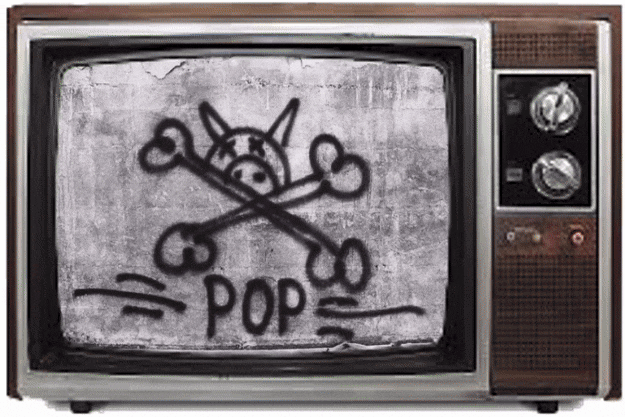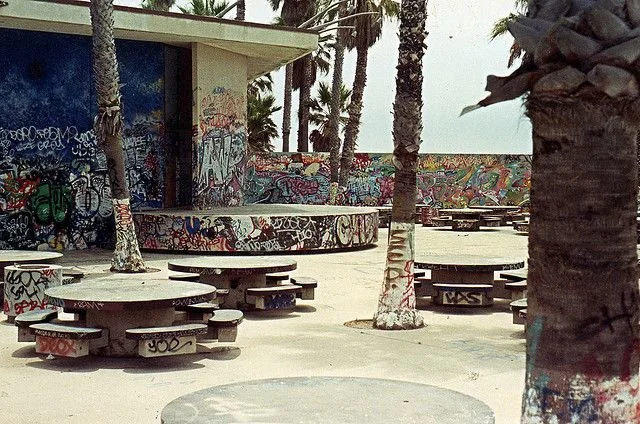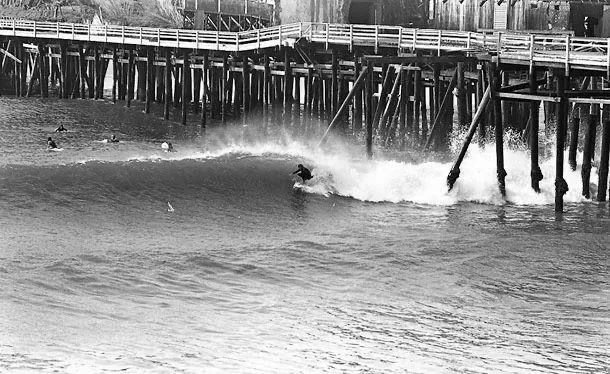-
Role: Global Campaign Manager
Employer: Red Bull Media House
Date: April 2024 - July 2024
Location: Venice, CA
In 2024, Red Bull Origin honored the birthplace of modern skateboarding—Venice Beach. The three-day event showcased legends, top pros, and rising stars competing for a $50,000 purse. The event provided a platform to those who pioneered skateboarding’s history while educating broader audiences about the sport ahead of the LA2028 Summer Olympics. -
Red Bull Origin honored Venice’s role in shaping skateboarding history while uniting generations and creating excitement for the LA2028 Summer Olympics.
Collaborative Leadership: Oversaw creative teams, uniting stakeholders under one cohesive vision.
Strategic Partnerships: Secured partnerships with influential voices.
Content Strategy: Created digital content and social-first strategies integrating athletes, brands, and creators.
Community Engagement: Organized community touchpoints, including an art showcase featuring skateboarding legends and community skate sessions.
Education Initiative: Introduced “Skateboarding Explained” to educate mainstream media ahead of the LA2028 Summer Olympics.
"Thanks Red Bull For Throwing Such A Thoughtful And Reflective Event. Shining Light On, And Showing Appreciation To All The Legends That Brought Skateboarding To Where It Is." - Andy Anderson -
"Thanks Red Bull For Throwing Such A Thoughtful And Reflective Event. Shining Light On, And Showing Appreciation To All The Legends That Brought Skateboarding To Where It Is." - Andy Anderson -
SPECIAL EDITION ZINES
1,500 Zines were Produced with Juice Magazine, the leading voice of Southern California Skateboarding. Distributed at Red Bull Origin, Skateboarding Explained and the Art Show. Through these pages consumers rode waves of history, exploring Venice’s Legendary Voices and the seismic impact they’ve had on the world of skateboarding; Perfectly Aligning with the ethos of Red Bull Origin.
Jesse Martinez, THE Venice Beach hero, was put on the cover to honor his Legacy in the community. The Red Bull Origin key visual graced the back cover along with a QR code that directed to the event homepage.
“I’m excited that Red Bull Origin brought back some of the original obstacles from the 80’s so we could watch the new Gen of rippers shred our faces off. It was an amazing weekend of skateboarding and a family reunion of friends, family and legends." - Christian Hosoi -
“I’m excited that Red Bull Origin brought back some of the original obstacles from the 80’s so we could watch the new Gen of rippers shred our faces off. It was an amazing weekend of skateboarding and a family reunion of friends, family and legends." - Christian Hosoi -
RED BULL ORIGIN ART SHOW
Featuring works from five legends of skateboarding culture.
- Jim Ganzer
- Craig Stecyk III
- Stacy Peralta
- Steve Olson
- Lance Mountain
THE VENICE BEACH PAVILION
Built in 1961, the Venice Pavilion became the birthplace of modern skateboarding in the 1980s and 1990s, blending graffiti and skate culture into a global phenomenon. With bold imagery like C.R. Stecyk III’s “Rat Bones” logo and East Coast graffiti introduced by artists like Kelly “RISKY” Graval, it defined a gritty, creative movement. Though much of the Pavilion was demolished in 2000, its legacy as a cultural landmark endures. The “Venice Pits” shaped skateboarding’s evolution and continues to influence art, fashion, and media worldwide.
PACIFIC OCEAN PEIR
Beginning in the early 1970s, an abandoned pier in Venice Beach called Pacific Ocean Park (known locally as POP Pier), was converted into an unlikely haven of misfits. As waves crashed the ruins of the old pier, restless young locals religiously surfed around POP, eventually dubbing it The Cove. POP Pier and the Venice Beach Pavilion are the legendary locations where a young group of surf skaters launched the Dogtown & Z-Boys aesthetic. To pay homage to the past, these two locations are where Red Bull Origin took place.
"The Red Bull Origin Art Show Will Undoubtebly Be Remembered as One of the Most Legendary Nights in Venice's Vibrant History." - Juice Magazine -
"The Red Bull Origin Art Show Will Undoubtebly Be Remembered as One of the Most Legendary Nights in Venice's Vibrant History." - Juice Magazine -
SKATEBOARDING LEGENDS
Craig Stecyk III
C.R. Stecyk III is a multimedia artist widely acknowledged as a major influence within the genres of graffiti and street art. Stecyk was involved with the founding of the Zephyr surf shop, where the boards he painted helped to establish the graphic styles of both surfing and skateboarding. He was a writer and production designer on the Sundance award-winning documentary Dogtown and Z-Boys and is one of the founders of Juxtapoz magazine. Stecyk has written and photographed extensively on the topics of art, surfing, skateboarding, custom car culture, and obscure California history. A surfboard shaped and painted by Stecyk resides in the permanent archive of the Smithsonian. Stecyk created numerous iconic symbols of surfing and skateboarding, such as the Lance Mountain skull logo, the “Vato Rat,” the Dogtown cross, and the “Skate and Destroy” marks.
Stacey Peralta
By 19, Stacy became the number one professional skateboarder in the world and revolutionized the sport. He founded the legendary Bones Brigade skate team which launched the career of Tony Hawk, Rodney Mullen, Steve Caballero, and countless others. When he was unhappy with the way his boards were being designed, he built his own business, Powell Peralta, and it quickly became the top skateboarding company in the world. When he sought out a way to showcase skateboarders he made his own run and gun films and forever changed the format of sports documentaries. His first film Dogtown and Z Boys won Best Director at Sundance.
Jim Ganzer
Jim Ganzer is now widely known as a Malibu surf legend and an underground LA icon. He and his group of surf friends inspired the 1978 film, Big Wednesday, written and directed by John Milius. When the Coen brothers were developing The Big Lebowski, Milius introduced them to Ganzer, who influenced Jeff Bridges’s famous character, The Dude. A graduate of Chouinard Art Institute, Jim Ganzer emerged as an artist when the surf and skate culture-inspired world was not yet a billion-dollar industry, but an afterthought in a mostly hardware-focused segment. He became the voice of the subculture in the ’80s for inventing cult garments under the brand, Jimmy’Z, combining form with function.
Steve Olson
Steve Olson introduced hardcore punk rock skateboarding to the world. If not for him, skaters would still have long bleach blond hair, O.P. short shorts and listen to Led Zepplin and Fleetwood Mac. Steve left his indelible mark on skateboarding and changed the look and outlook of skateboarding forever.
Lance Mountain
A Bones Brigade luminary, Robert Lance Mountain may be known for his playful persona but it’s his competitive nature that made him stand out. Lance’s free-flowing willingness to try anything in any situation made him a key figure in Stacy Peralta’s videos, elevating him to an icon that anyone could relate to but no one could imitate. Lance’s artistic lens on skating has become an entire faction, model, and lane that’s inspired so many to find theirs.
Christian Hosoi
In the 1980s, lengendary skateboarder Christian Hosoi emerged as a standout talent in the world of transition skating, heavily-influenced by the style and power of the original Z-Boys like Jay Adams and Shogo Kubo. Known for his high-flying tricks and unique style, Hosoi quickly made a significant impact on the sport and a name for himself.
Scott Oster
Scott Oster is one fortunate enough to be blessed with, a word that is now almost obsolete, ‘STYLE!’ There are nose wheelies, nose manuals and then there are G-Turns. Once the realm of freestyle skaters, it took street skaters with an old school surf style to make them look good. And when it came to making them look good, Scott Oster was the master!
Tony Alva
A skateboarding pioneer and original Z-Boy, revolutionized the sport with his aggressive style and pool skating. Credited with creating the first modern skate deck, he helped shape skateboarding into a global phenomenon. A key figure in surf and skate culture, Alva also fronted punk bands and influenced streetwear through his Alva Skates brand, embodying the rebellious spirit of the 1970s.




































































